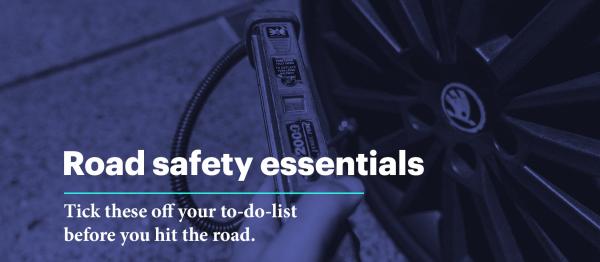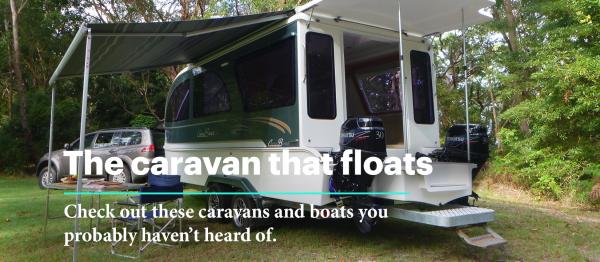This article was originally published in January 2021 and has been updated.
Share this story:
When camping or caravanning, warm and sunny weather make perfect days for outdoor activities. But as we all know, weather can be very unpredictable – and when clouds roll around and gusty winds blow in, it can wreak havoc on your caravan awning.
In fact, according to our 2020 data, over a six-month period between January 19 to June 20, approximately 18% of caravan claims were made due to damaged or broken caravan awnings caused by wind or storm damage. So, to help protect your caravan awning, here are a few things you can do.
James Thomson, Research and Engineering Manager for Insurance Australia Group (IAG), parent company of NRMA Insurance, said the most important thing caravan owners can do to prevent their awnings from being damaged before bad weather arrives is to stay two steps ahead. “Without a doubt the best thing to do is to retract and stow caravan awnings away before the wind comes up,” Mr Thomson said. It may seem simple but it’s probably one of the most logical things to do to protect your caravan awning from being damaged. If you know a storm is brewing and it might put your awning at risk, simply remove it or stow it away in a safe place out of harsh weather conditions.
When caravanning or camping, it’s always important to stay tuned to weather forecasts so that you can be prepared for what’s to come. Mr Thomson recommends checking weather forecasts daily. “This way you can be aware of what’s coming and stow awnings before you’re at risk,” he said. “After all, a broken awning can possibly ruin a trip.”
If you’re setting up at a caravan park you can have a chat to the site owner about the direction of the prevailing winds to help you position your awning appropriately. Another great way to find out all the predicted weather patterns is from the simple touch of your mobile. Keep an eye out on the weather by using WillyWeather. Accessing the app or website can provide you with the weather forecast of your exact location so that you can stay a step ahead of the rolling clouds.
When you’re on holidays it’s easy to get excited about relaxing and skip properly setting up your caravan awning. But this step shouldn’t be overlooked or rushed. If you make sure you tick all the boxes before heading to the beach or throwing a line out to catch dinner – if gusty winds or storms did happen unexpectedly and you couldn’t make it back in time to safely stow your awning away – then at least you know you’ve done your best to prevent your awning from being bent, ripped or turning into a sail and blowing away. Take your time to ensure your awning is correctly fixed with proper guy ropes or pegs. But remember, prevention is always better than cure, and the best way to protect your awning is to always stow it away ahead of inclement weather.
To help prevent your awning from ripping or tearing you can buy a caravan awning tensioner. It’s a great tool to use to protect against fabric tears and is designed with a UV stabilised nylon that’s rust proof and is resistant to chemicals. While it reduces the annoying noise of flapping during high levels of wind, keep in mind that it does not prevent damage, so if high winds do pick up remember to always stow your awning.
Often at times, we hear about unfortunate mishaps and we don’t think they’d ever happen to us. But what if they did? As the saying goes, it’s better to be safe than sorry. So, in order to avoid the possibility of your caravan covering being damaged or caught in the wind and flying into the distance never to be seen again, get your caravan awning insured – just in case the unexpected happens.
“Replacements and repairs are expensive so having your awning insured protects you for those unexpected times and brings piece of mind to your relaxation time,” Mr Thomson explained. So be sure to get not only the right insurance policy that provides cover for your caravan, but also provides cover for your caravan awning too.
All content on the NRMA Insurance Blog is intended to be general in nature and does not constitute and is not intended to be professional advice.


